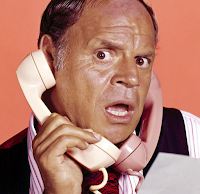Although if you do want more, his version of Phil Collin's Against All Odds is perfection as well.
And in this weekend of Star Wars, may the Force be with you.
** The Pattering about Panels that we did this week:
- Rob M. Graphic Nonfiction column focused on Audrey Quinn and Jackie Roche examining the climate of Syria
- Maia K. highlighted the Alphabet Anthology that's currently running a Kickstatrer campaign
- On his blog, Rob K. wrote about his top 30 comics of 2015.
- Mark D. reviewed The Grime at The Green Gocrow
- James K. dug The Ultimates #2 over at Comicosity
- Scott C. read Batman #47 for Pop Optiq.
** TWC Question Time #17: Best Work by New Creators (Trouble With Comics)-- This week over at the Trouble With Comics site, I participated in this week's questions about the best works by new creators. Only I misread the question and wrote about the best new creators of the 2010s. It was a difficult question. So many of the cartoonists that I immediately thought of really started around 2005 or 2007 so they didn't qualify for the question that was in my mind. But once I started to be able to narrow it down to creators who really started in 2010 or later, there were a few suprises that I was able to think of.
Here's the preview of my list. You'll have to click on the actual link to see why I chose them.
- James Harren
- Tula Lotay
- Tyler Crook
- Charles Forsman
- Stephanie Hans
- Scott Snyder
- Jordie Bellaire
- Russell Dauterman
There are some good books listed from those who actually answered the question that was asked.
** From beyond grave, Charlie Hebdo editor’s last manifesto preaches against hate (Comic Riffs)-- In a couple of weeks, Stephane Charbonnier's “Open Letter: On Blasphemy, Islamophobia, and the True Enemies of Free Expression" is set to be published. Charbonnier is one of the many people killed in the Charlie Hebdo attacks in Paris earlier this year. At Comics Riffs, Michael Cavna highlihgts the upcoming 82 page manifesto.
And what Charb most had a talent for was walking through the intersections of crossing philosophies and ideologies and, like Camus as some whistle-blowing traffic cop, calling out hypocrisy after passing hypocrisy. He is both appalled by, and seems to delight in, the height of man’s philosophical absurdities. His badge is the power of a free press, and his whistle is the power of humor to engage.









